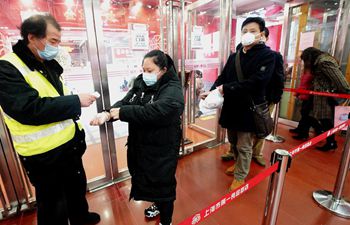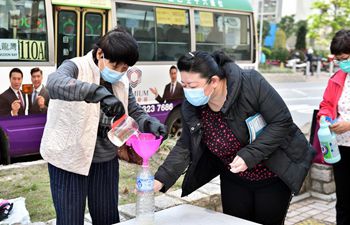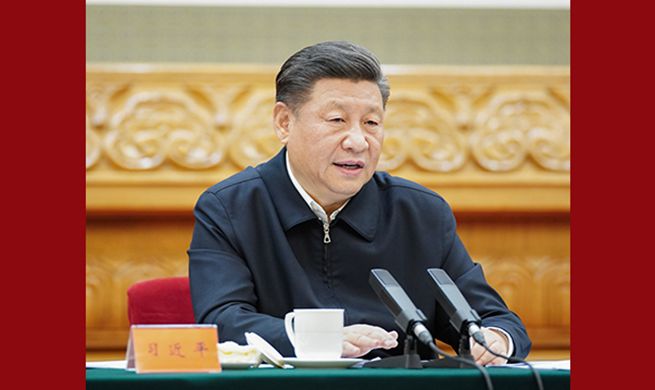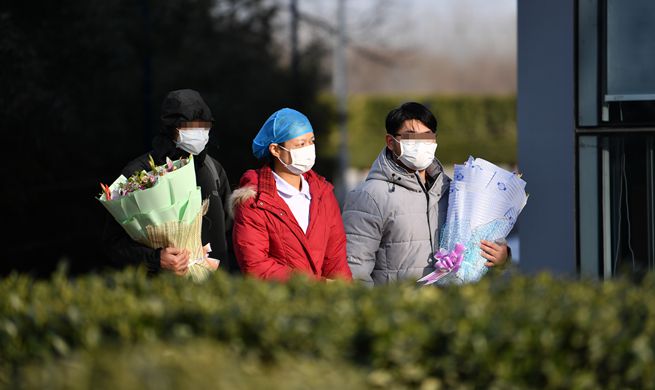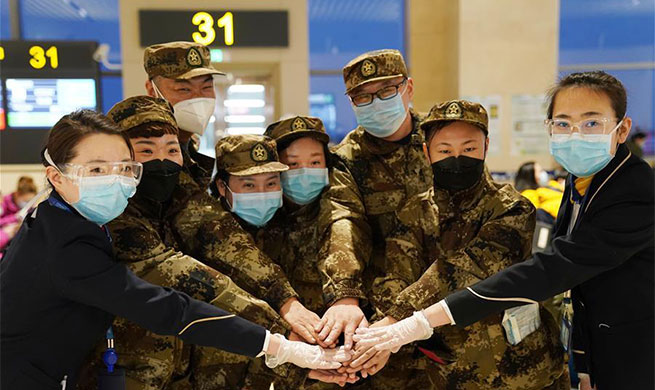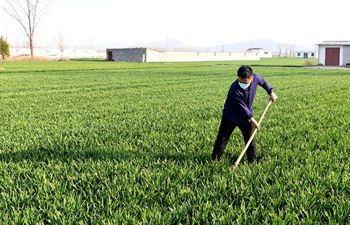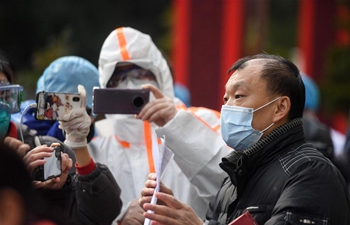by Xinhua writers Zhao Yang and Zhang Zhongkai
BEIJING, Feb. 23 (Xinhua) -- With spring right around the corner, one of the sectors hit the hardest by the novel coronavirus epidemic is gaining steam in its recovery. China's tourism industry is biding its time with multiple innovations and aid for a postponed high season.
As people choose to stay at home during the epidemic outbreak, the tourism industry, along with catering and out-of-home entertainment, were significantly impacted, according to consulting firm Kantar. About 75 percent of the surveyed travel companies' clients canceled their plans, and 17 percent of their consumers cut back spending.
China's tourism sector generated a revenue of 513.9 billion yuan (about 73.2 billion U.S. dollars) during the Spring Festival of 2019, according to the China Tourism Academy. The number plunged year on year in the just-concluded Spring Festival holiday, said Ren Zeping, a chief economist of Chinese property developer Evergrande.
It's a tough time for tourism enterprises, who are faced with challenges brought by revenue collapse due to demand dive. Some small and medium-sized businesses even struggled in making ends meet and avoiding capital chain rupture.
The disrupted outdoor traveling, however, does not spell doom for the industry. It is pushing China's tourism market to go off the beaten track by exploring emerging business modes.
Many fresh endeavors are made at putting the travel experience online, with indoor flower appreciation realized in Shanghai via cloud computing, courtyards of the Forbidden City displayed online through 360-degree panoramic photography and the audio animal introduction recorded by popular TV hosts available for online visitors of the Beijing Zoo.
China's largest online travel agency Trip.com facilitated cloud tourism of over 3,000 tourist attractions in 832 cities of 48 countries in the world. Baidu.com launched around 300 online museums while Travelgo.com carried out free online promotion of travel destinations using virtual reality technology.
Cloud Tourism replaced on-site traveling to meet people's demand, which ranked in the top 10 activities of home-stranded youth, according to Xiaohongshu, an Instagram-like Chinese fashion and lifestyle sharing platform.
Travel agencies and homestay owners also promoted advanced booking with attractive discounts. Local tourist guides and homestay owners turned to sell local farm produce online through livestreaming or e-commerce platforms.
In addition to broadening business channels, tourism companies eyed on the post-epidemic market boom, improving competitiveness by strengthening staff training, maintaining facilities, engaging potential customers and upgrading products and services.
Data from Alibaba's tourism platform Fliggy.com showed that people spent more time online viewing travel logs, destination guides and live travel broadcasts during the epidemic outbreak, suggesting potential demand for the industry.
To keep the sector afloat, central and local authorities are racing to ease the sector's financial strain.
China's tourism regulator has decided to return 80 percent of security deposits for tourism service quality to registered travel agencies. At the same time, the taxation watchdog extended the maximum carry-over period for tourism players' losses incurred in 2020.
Local authorities also stepped up support in budget, financing, social security and employment for firms, providing subsidiaries, returning social security and unemployment insurance, extending credit repayment deadlines and reimbursing professional training costs.
Meanwhile, industrial giants like Trip.com moved to help their smaller partners by waiving service fees, providing loans, granting insurance, strengthening promotions and facilitating professional training for business users of their platforms.
Outdoor tourist sites in several provinces have resumed operation with high epidemic control standards.
Industrial specialists are optimistic about the post-epidemic rebound. "There will be a strong market rebound after the epidemic ends," said James Liang, Trip.com's executive chairman, citing the experience of the post-SARS market performance.
"It would not be long before the spring comes."







